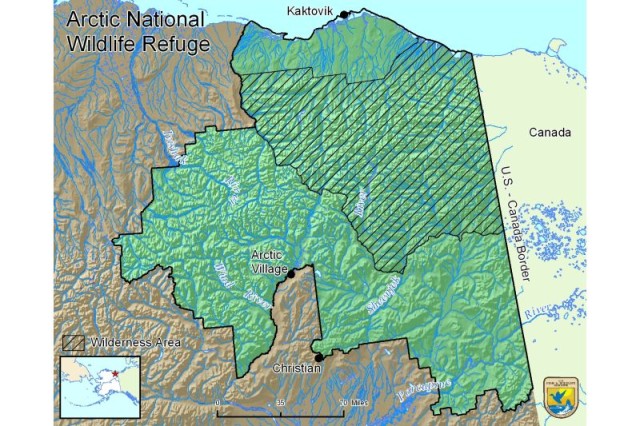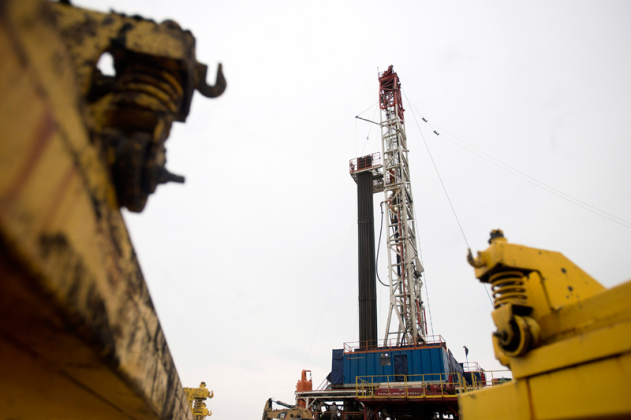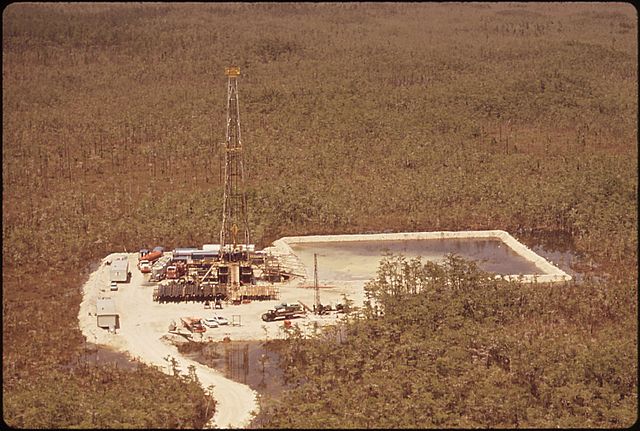Obama Wants to Close Off Energy-Rich Stretch of Alaska to Development
Pultizer Prize-winning author Daniel Yergin, wrote in the New York Times that global energy markets are at an inflection point. The role of the world’s “swing producer” has swung to the United States:
By leaving oil prices to the market, Saudi Arabia and the emirates also passed the responsibility as de facto swing producer to a country that hardly expected it — the United States. This approach is expected to continue with the accession of the new Saudi king, Salman, following the death on Friday of King Abdullah. And it means that changes in American production will now, along with that of Persian Gulf producers, also have a major influence on global oil prices.
Even though hydraulic fracturing had led this shale boom, conventional oil production is still important.
This makes the Obama administration’s request to close off a big portion of Alaska’s energy reserves to development especially disappointing:
President Barack Obama is proposing to designate the vast majority of Alaska’s Arctic National Wildlife Refuge as a wilderness area, including its potentially oil-rich coastal plain, drawing an angry response from top state elected officials who see it as a land grab by the federal government.
“They’ve decided that today was the day that they were going to declare war on Alaska. Well, we are ready to engage,” said U.S. Sen. Lisa Murkowski, R-Alaska, and chair of the Senate energy committee.
The designation would set aside an additional nearly 12.3 million acres as wilderness, including the coastal plain near Alaska’s northeast corner, giving it the highest degree of federal protection available to public lands. More than 7 million acres of the refuge currently are managed as wilderness.
The U.S. Geological Survey estimates that the area has over 10 billion barrels of recoverable oil.
The wilderness designation will require Congressional approval—not likely with this Congress. However, the Washington Post reports that the Interior Department will take action to limit energy development there [H/t Noah Rothman]:
While Congress would have to approve any new wilderness designation, Interior will immediately begin managing the iconic area under the highest level of protection the federal government can offer.
President Obama, who has not been to ANWR and ironically filmed his announcement on the fuel-guzzling Air Force One said, we must ensure “that this amazing wonder is preserved for future generations.”
In contrast Jonah Goldberg, someone who has visited ANWR, had a different description of the area where oil development would take place:
The oil is on the coastal plain at the very top of ANWR on the coast of the Arctic Ocean. And that ain’t beautiful. Believe me. Winter on the coastal plain lasts for nine months. Total darkness reigns for 58 straight days. The temperatures drop to 70 degrees below zero without wind chill. This is the time of year when the oil companies would do almost all of their work; when nary a caribou nor any other creature would be dumb enough to venture out on to the frozen tundra for long. Regardless, ANWR’s summer is no picnic either. The coastal plain is covered in a thick brick of ice for much of the year. When it melts, it creates, well, puddles. Lots and lots of puddles – and mud. This provides the lebensraum that mosquitoes and other flying critters need to stretch their wings.
But back to the President. In last week’s State of the Union Address he took credit for the oil and natural gas boom, but the facts tell a different story. Under his watch, oil and natural gas development has decreased on federal lands while increased on private and state lands. In fact, his administration has put up barriers to energy development. The ANWR proposal is the latest.
The administration is expected to release a draft of its offshore lease plan. That may include allowing energy development off the Atlantic coast. Such a decision will be welcome for its economic and job growth and bipartisan support, but it will further confirm how incoherent the President’s energy policy is.










